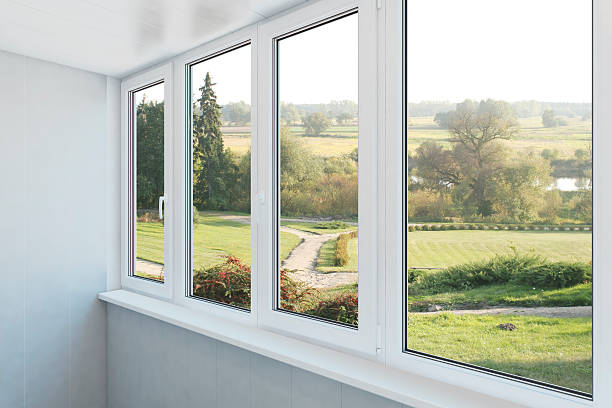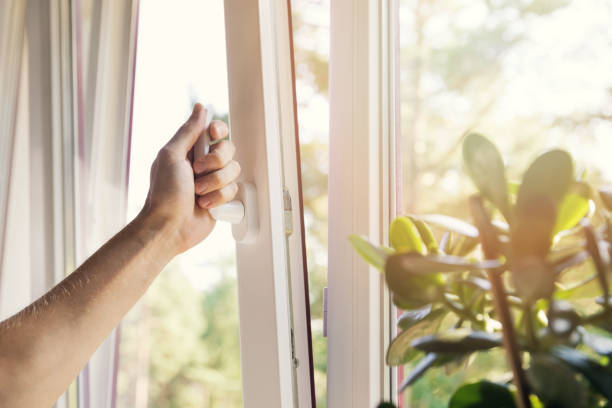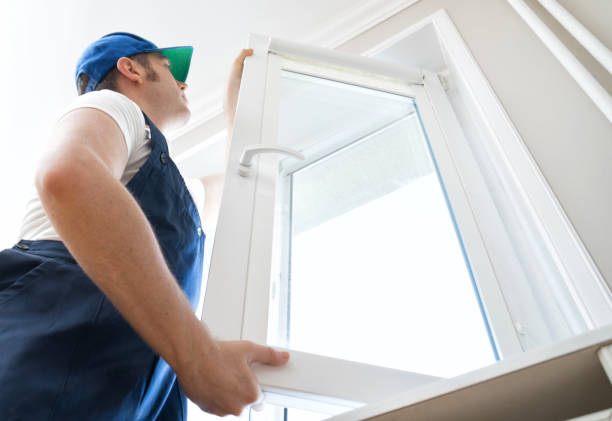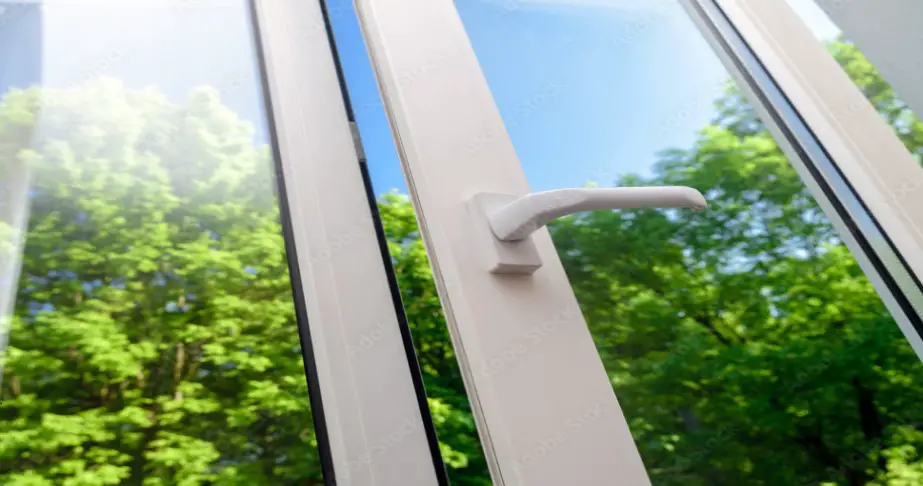Vinyl windows have become increasingly popular in modern architecture and home construction.
Their durability, energy efficiency, and low maintenance requirements make them a desirable choice for homeowners.
However, it is essential to understand how they behave under different conditions, particularly when it comes to expansion and contraction.
This will enable you to make informed choices based on their specific needs and conditions.
Do Vinyl Windows Expand and Contract?
Yes, vinyl windows indeed expand and contract in response to temperature changes and other factors.
They’re made from a synthetic material called polyvinyl chloride (PVC).
This versatile material offers numerous advantages, such as resistance to moisture, corrosion, and rot.
It’s also known for its excellent thermal insulation properties, making vinyl windows an energy-efficient option.
How Vinyl Windows Expand and Contract

Vinyl windows undergo a process of thermal expansion and contraction due to temperature changes.
As the temperature rises, the vinyl material expands, and when it cools down, it contracts.
This behavior occurs due to the molecular structure of vinyl, which responds to heat by increasing the distance between its molecules.
The opposite happens when the temperature decreases.
Related: 5 Best Types of Pillowcase Closures
Consequences of Expansion and Contraction
When vinyl windows undergo expansion and contraction without proper accommodation, several potential consequences can arise, affecting their performance and functionality.
Understanding these consequences will help to ensure the long-term durability and efficiency of your windows.
Note that while the windows do expand and contract, manufacturers account for these movements during the production process.
Quality vinyl windows are designed to accommodate these changes without compromising their structural integrity or functionality.
However, extreme or prolonged exposure to unfavorable conditions can still impact the performance of the windows, underscoring the importance of proper installation, maintenance, and environmental considerations.
Here are some consequences to keep in mind.
Warping and Distortion
Vinyl windows that experience significant expansion and contraction may warp or distort over time.
This can result in misaligned frames, which can affect the window’s ability to open and close smoothly.
Warping and distortion not only compromise the aesthetics of the windows but can also impact their functionality and seal.
Damage to Window Frame and Seal
Continuous expansion and contraction cycles can put stress on the window frame and seal.
Over time, this stress can lead to cracks or gaps in the frame, compromising its structural integrity and reducing its ability to provide a proper seal.
Damaged frames and seals can result in air leakage, water infiltration, and decreased energy efficiency.
Energy Efficiency Impact
Vinyl windows are valued for their energy efficiency, but when expansion and contraction are not accounted for, the window’s insulation properties can be compromised.
Gaps or misalignments caused by these movements can allow drafts and heat transfer, reducing the window’s ability to maintain a stable indoor temperature.
As a result, heating and cooling costs may increase as the HVAC system works harder to compensate for the energy loss.
Related: Unknown Advantages of Foam Paint Rollers
Minimizing Expansion and Contraction

To mitigate these consequences, you need to take proactive measures.
Proper Installation
Ensuring the windows are installed with sufficient space for expansion and contraction is essential.
Professional window installers follow guidelines to allow for these natural movements, reducing the risk of warping and damage.
Reinforcement and Support
Reinforcing the window frames with appropriate materials can provide added stability and minimize the impact of expansion and contraction.
Reinforcements such as metal inserts or additional structural supports help distribute the stress caused by temperature fluctuations.
Regular Maintenance
Regular maintenance and care of vinyl windows play a vital role in preventing issues associated with expansion and contraction.
Cleaning the tracks and hinges, inspecting the frame and seal for any signs of damage or wear, and addressing issues promptly can help preserve the window’s integrity and minimize potential problems.
Factors Affecting Vinyl Window Expansion and Contraction
Several factors contribute to the expansion and contraction of these windows.

Environmental Factors
Temperature variations
Temperature fluctuations have a direct impact on the expansion and contraction of vinyl windows.
As the temperature increases, the vinyl material expands, and as it decreases, it contracts.
Vinyl has a relatively high coefficient of thermal expansion, meaning it’s more responsive to temperature changes compared to other materials used in window construction.
Extreme heat or cold can cause significant expansion or contraction, potentially leading to structural stress on the window frame.
Related: Clearly Filtered Vs Aquagear Water Filter Pitcher (Comparison)
Sunlight exposure
Sunlight, particularly ultraviolet (UV) radiation, can influence the behavior of vinyl windows.
Prolonged exposure to direct sunlight can increase the temperature of the window surface, causing expansion.
UV radiation can also affect the molecular structure of the vinyl material over time, leading to potential degradation and increased susceptibility to expansion and contraction.
Humidity levels
High humidity can cause moisture absorption by the vinyl material, which can contribute to slight expansion.
On the other hand, low humidity can result in moisture loss from the material, leading to contraction.
While the effect of humidity alone may be relatively small, it can still contribute to the overall expansion and contraction behavior of the windows.
Physical Factors
Window size
Larger vinyl windows are more susceptible to noticeable expansion and contraction compared to smaller windows.
This is because larger surface areas have greater exposure to temperature variations, leading to more significant dimensional changes.
Homeowners with larger windows should be particularly mindful of providing adequate space for these movements during installation to prevent issues such as warping or distortion.
Multi-pane design
Vinyl windows often come in multi-pane configurations, which can impact their expansion and contraction behavior.
Windows with multiple panes separated by gas fills, such as argon or krypton, provide better insulation and can mitigate the effects of temperature fluctuations.
The gas fill acts as a barrier, reducing heat transfer and minimizing the expansion and contraction of the vinyl frames.
Consequently, multi-pane designs with gas fills offer enhanced energy efficiency and stability.
Glass type
Low-emissivity (low-E) glass coatings are designed to reflect heat and reduce the amount of infrared radiation that enters or leaves the window.
This feature helps regulate the temperature inside the home and minimizes the impact of temperature changes on the vinyl frames.
By incorporating low-E glass, vinyl windows can maintain a more stable temperature and experience less expansion and contraction.
Related
- Shadow Box Fence Pros and Cons
- Shadow Box Fence Vs Board on Board Fence (Side by Side Comparison)
- Best Paslode Framing Nailers Review
- Top 5 Freeman Framing Nailers Review
- Best Numax Finish & Framing Nailers Review
- 8 Best Metabo Framing Nailers Review
- Best Pneumatic Nail Guns Review
- Advantages and Disadvantages of Dog Eared Fence
- Monument Grills Vs Weber Grills Review
- Clearly Filtered Vs Aquagear Water Filter Pitcher (Comparison)

